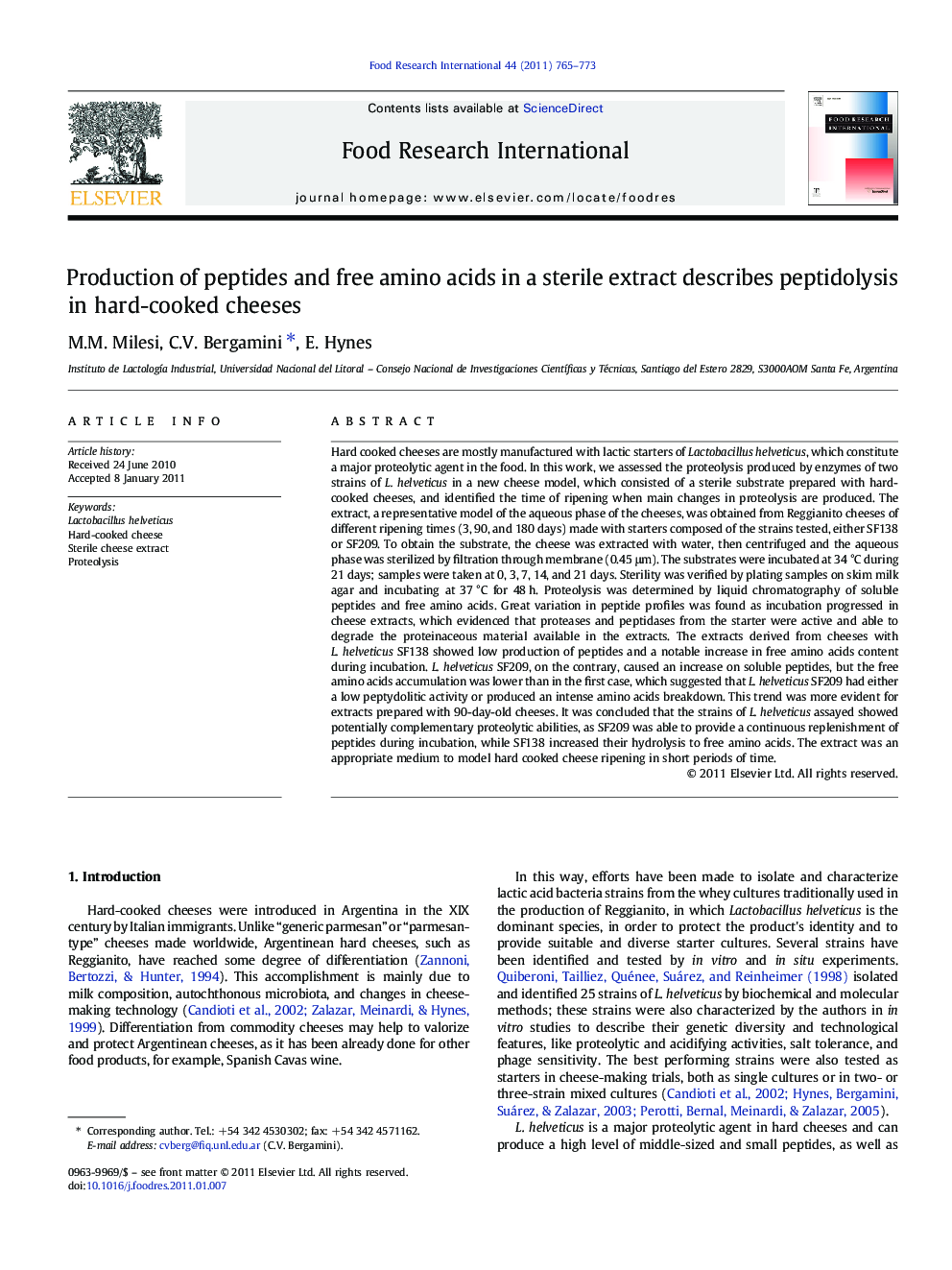| کد مقاله | کد نشریه | سال انتشار | مقاله انگلیسی | نسخه تمام متن |
|---|---|---|---|---|
| 4561997 | 1330698 | 2011 | 9 صفحه PDF | دانلود رایگان |

Hard cooked cheeses are mostly manufactured with lactic starters of Lactobacillus helveticus, which constitute a major proteolytic agent in the food. In this work, we assessed the proteolysis produced by enzymes of two strains of L. helveticus in a new cheese model, which consisted of a sterile substrate prepared with hard-cooked cheeses, and identified the time of ripening when main changes in proteolysis are produced. The extract, a representative model of the aqueous phase of the cheeses, was obtained from Reggianito cheeses of different ripening times (3, 90, and 180 days) made with starters composed of the strains tested, either SF138 or SF209. To obtain the substrate, the cheese was extracted with water, then centrifuged and the aqueous phase was sterilized by filtration through membrane (0.45 μm). The substrates were incubated at 34 °C during 21 days; samples were taken at 0, 3, 7, 14, and 21 days. Sterility was verified by plating samples on skim milk agar and incubating at 37 °C for 48 h. Proteolysis was determined by liquid chromatography of soluble peptides and free amino acids. Great variation in peptide profiles was found as incubation progressed in cheese extracts, which evidenced that proteases and peptidases from the starter were active and able to degrade the proteinaceous material available in the extracts. The extracts derived from cheeses with L. helveticus SF138 showed low production of peptides and a notable increase in free amino acids content during incubation. L. helveticus SF209, on the contrary, caused an increase on soluble peptides, but the free amino acids accumulation was lower than in the first case, which suggested that L. helveticus SF209 had either a low peptydolitic activity or produced an intense amino acids breakdown. This trend was more evident for extracts prepared with 90-day-old cheeses. It was concluded that the strains of L. helveticus assayed showed potentially complementary proteolytic abilities, as SF209 was able to provide a continuous replenishment of peptides during incubation, while SF138 increased their hydrolysis to free amino acids. The extract was an appropriate medium to model hard cooked cheese ripening in short periods of time.
Journal: Food Research International - Volume 44, Issue 3, April 2011, Pages 765–773